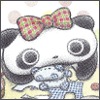
If the ALA is stereotyped as a bunch of liberals... well, this year's Printz award does nothing to dispel that myth. Not that I have a problem with that, because I just love these books so much, and I don't think that any of them are preachy in the least except -- just a tiny bit -- the Pratchett.
People are sure going to wail about the liberals on the ALA committees this year. Honor book #1: Octavian Nothing, vol. II, which is about race, and the meanings of 'freedom' and 'liberty,' and the meaning of loyalty, and colonialism, and the assumptions written into the popular conceptions of American history. I wrote that volume I is the most postmodern thing I've ever read for young adults; volume II is less postmodern, I think, but it's still so much about how we think about history.
Honor book #2: The Disreputable History of Frankie Landau-Banks, which I think is the most feminist thing I've read for young adults, and tackles this whole huge issue of invisible power structures and the ways in which we can resist those or can attempt to resist them while actually playing into them. There are so many books about what a girl can do when the power structures are saying out loud, "You can't," but in many ways the world we have now is a world where no one says out loud "You can't," but -- it's like a whisper or a rumor that makes you whirl around and see what's behind you, and then you feel silly and paranoid because there's nothing there, but. There is something there.
Honor book #3: Nation, which is at least as much atheist propaganda as Philip Pullman. Not that there's anything wrong with that. Okay, I might not go that far, but it's an extremely existentialist book, isn't it? It's profoundly about making meaning for yourself after the foundations of tradition and meaning on which you've built your life have been destroyed or taken away from you. And also, colonialism and religion and cultural relativity.
Honor book #4: Tender Morsels... which is actually not at all ideological. But it has sex in it, so it must be Liberal, right? (Actually, I would be not at all surprised if this gets pigeonholed as a feminist book, because any book about Rape Is Bad is not of relevance to men...) But the thing is, the painful vicious stuff in the first two chapters is really vivid, but ultimately, thematically, it's not what the book is about. It's just setup for the real thematic center of the book, which is how we can navigate the truth that we don't get to live in the world we want to live in. How the world, as it actually is, is painful, heartbreaking, unfair, but somehow we have to figure out how to live in that world instead of an unreal world.
So: four books, and between them, race, gender, power, religion, culture, freedom, rebellion, truth, meaning... what a year for young adult books! How great is it that we respect young people enough to know that they can handle this stuff?
Yeah. The committee did a great job.